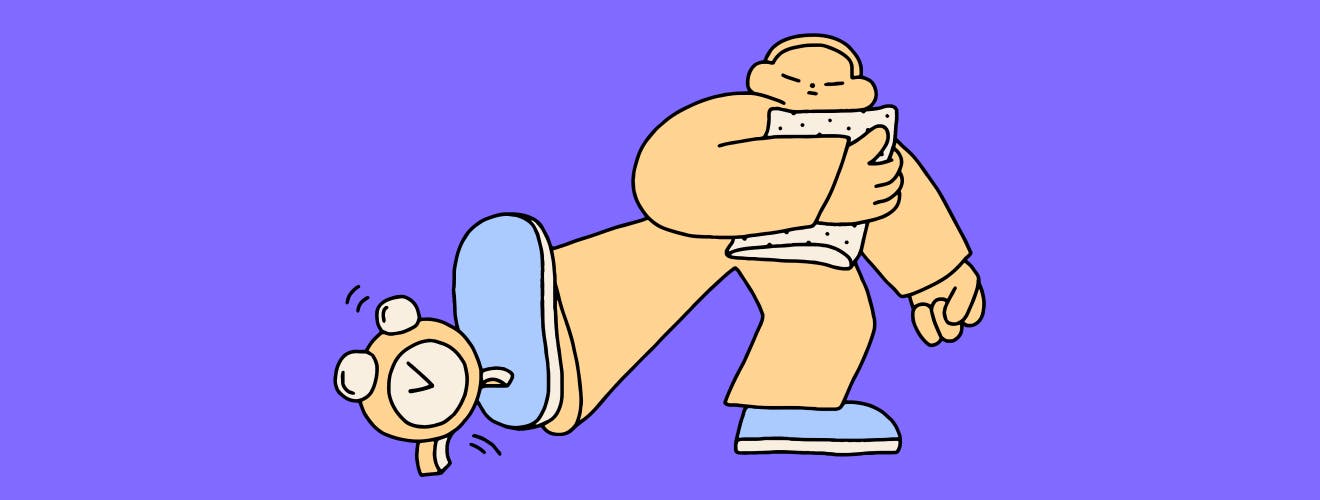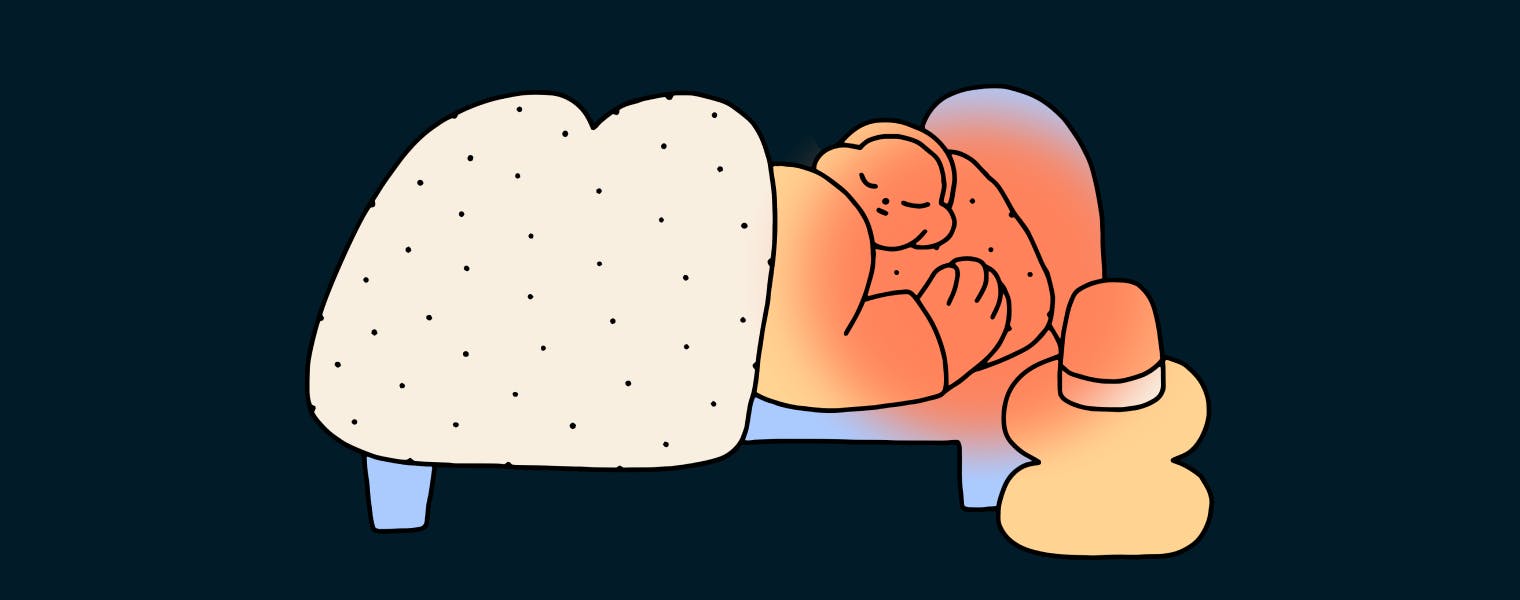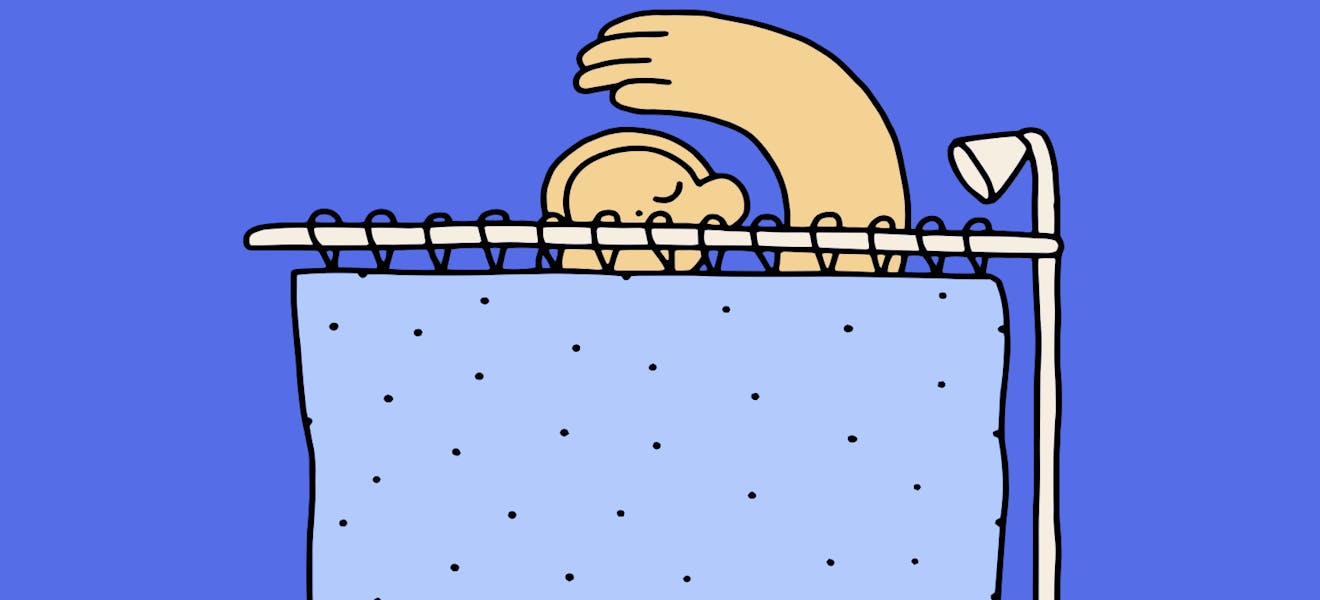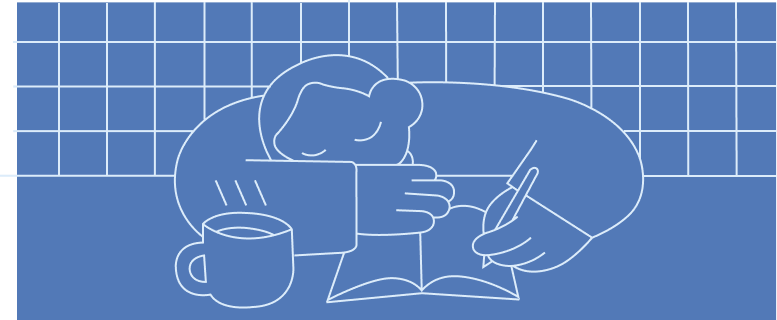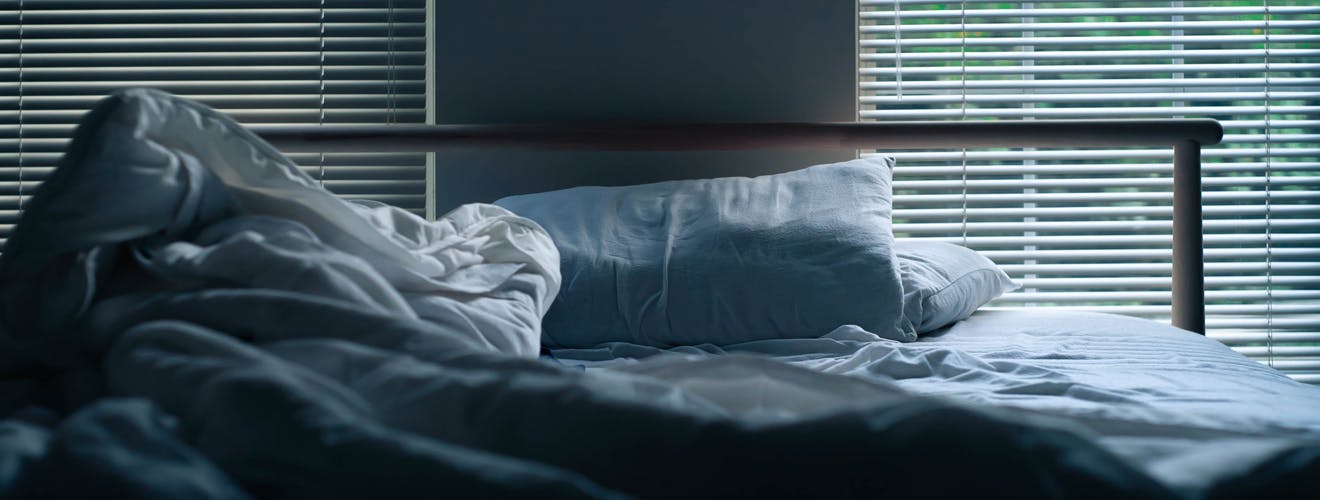How To Stay Cool While Sleeping
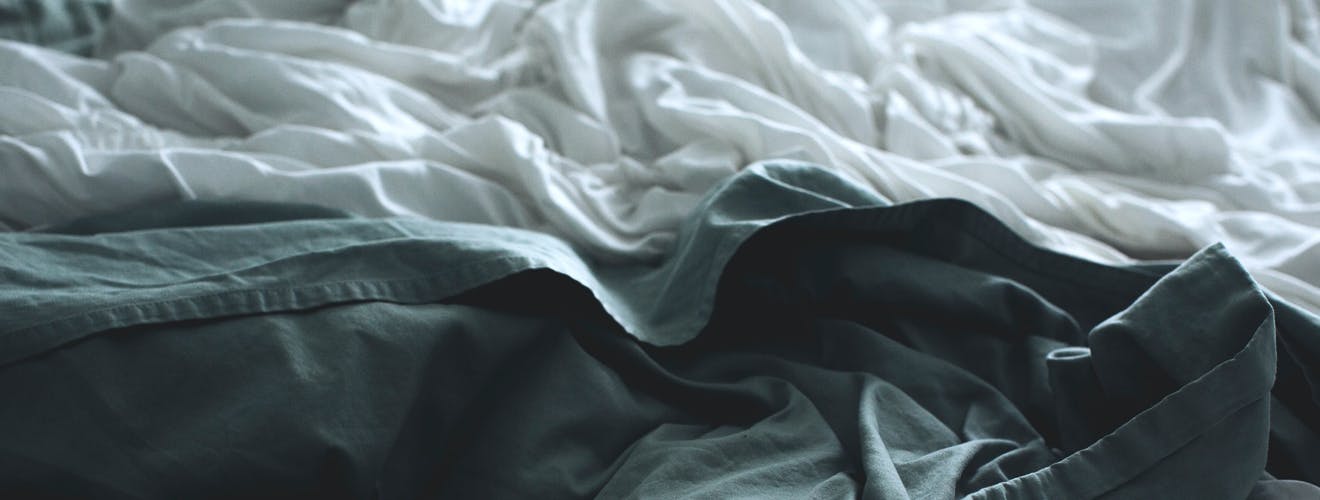
Picture this: you're riding out the ultra-hot weather. You’ve finally managed to get some shut-eye, but as soon as you start going into a deep sleep, you wake up soaked in sweat. If you've been here before and have struggled to get back to bed, you're not alone. Overheating can interfere with your circadian rhythm, disrupting your sleep and affecting your overall health and well-being. In this article, we're discussing how to stay cool while sleeping—and no, we don't mean by blasting air conditioner all night long. Read on below for more information on how your core body temperature affects your sleep quality. We'll also offer strategies for avoiding night sweats, hot flashes, and damp sheets while sleeping.
How Does Temperature Affect Sleep?
During the day, our retinas detect natural sunlight and send a signal to our suprachiasmatic nucleus (SCN). This increases cortisol, a hormone that keeps us alert by raising our body temperature to normal waking levels (which is about 98.6 degrees Fahrenheit for most people).
As night falls, our eyes perceive darkness and tell our SCN to release melatonin, a hormone that helps us sleep by acting on receptors in our bodies. This causes a drop in our body temperature.
Once we’re in bed, our body temperature will continue decreasing during the first two stages of our sleep cycle. Once it hits its lowest point, it will continue to maintain this temperature throughout the night, then return to normal levels before we wake up, helping us feel refreshed and alert in the morning.
How External Temperatures Can Affect Sleep
Although your body has its own natural thermoregulation, external temperatures can also affect things. If your bedroom is too hot or your bedding isn’t comfortable for sleeping, your body temperature will increase, disrupting your sleep.
The ideal temperature for sleep ranges between 60 and 67 degrees Fahrenheit. When this temperature is higher than recommended, we start experiencing trouble falling and staying asleep. Because we’re more sensitive to temperature fluctuations during the first two stages of sleep, even small changes can make you feel overheated and cause you to wake up in a sweat.
Getting less sleep in these stages will impair your body’s repair and recovery processes, causing you to wake up tired and less refreshed. It’s, therefore, critical to ensure body temperature regulation to get better sleep.
9 Ways To Stay Cool on Hot Nights

Here are a few strategies that will help hot sleepers improve their sleep environment and stay cool on hot summer nights.
Sleep in Loose, Cotton Clothes
Wearing tight clothing to sleep can increase your body temperature. It also reduces the airflow to your body during the night, which isn’t ideal for getting a good night’s sleep.
Tight waistbands or garters can even trap hot air and excess heat, which can exacerbate feelings of discomfort. Meanwhile, clothes made of lightweight, sweat-wicking, natural fiber help your skin breathe, which can greatly improve your sleep quality.
To improve temperature regulation, it’s recommended that you invest in cooling technology such as a cooling mattress or cooling pillow with cooling features to keep your bed cooler.
On particularly warm nights, you can also sleep alone to get rid of excess body heat. As heat rises, you can also try sleeping on the lowest level of your house to avoid the updraft of warm air instead of sleeping on the second or third floor.
Keep Cold Water by the Bed
Drinking cold water can lower your core body temperature and maintain proper hydration levels, creating an environment that will help you fall and stay asleep. For this reason, it’s a good idea to keep a glass of cold water by your bed in case of excessive heat. You can also drink a cold glass of water to help you sleep better before turning off the lights.
Open the Windows
We often close the windows when the heat gets unbearable, but did you know that it can worsen ventilation in your room?
If there’s warm air, keep the windows cracked open throughout the night to give warm air an escape route. It will encourage a natural cross-breeze and provide adequate ventilation, allowing you to stay cool while sleeping.
You can also create cross-ventilation by making a smaller opening in one window for air to enter, and a larger opening in the window directly across it so air can exit your room. You can get the same effect by positioning a fan across a window. This will enhance air speed and improve ventilation for a stronger cooling effect.
Limit Alcohol Intake
A glass of wine or a pint of beer can be a nice nightcap, but it can also make it more difficult to achieve a good night’s sleep.
Alcohol causes your blood vessels to dilate and your heart rate to rise, which can exacerbate night sweats. Additionally, because alcohol dehydrates the body, it can cause you to feel hot and uncomfortable while sleeping.
It's advised to steer clear of alcohol at least two to three hours before bedtime to prevent a higher body temperature and hot flashes. So, the next time you’re craving a drink before bed, try a glass of milk or a cup of warm tea instead.
Hack Your Fan
A ceiling fan can also help cool a room. On a hot summer night, adjust your fan to a higher speed in the counterclockwise direction. The resulting airflow will provide a cool breeze by circulating cooler air to keep your room cool.
You can also install a box fan by the window. It will push hot air out and circulate cool air through your room, increasing airflow. Alternatively, you can place a shallow bowl full of ice cubes between you and the fan. The cold water from the ice’s surface will be picked up by the breeze, generating cool, misty air.
Take a Warm Shower
While it may seem counterintuitive, a relaxing warm shower or a warm bath before bed instead of cold showers can relax and lower your core body temperature.
Your body temperature will initially rise while you’re in the shower but your body will adjust and adapt to the cooler environment when you step out of the bathroom. This drop in body temperature has a cooling effect, making it easier for you to fall asleep.
This is supported by a 2019 study that revealed that a warm shower one to two hours before bedtime can improve sleep quality and help you fall asleep 10 minutes faster. Make sure you're not taking very hot showers since they can heat your bathroom and make your sleeping environment uncomfortable.
Freeze a Washcloth
Soak a washcloth in cold water and place it in the freezer for a few hours. Use it as a cold compress to keep your body cool when trying to fall asleep. You can also freeze your bed sheets or socks for more cooling comfort.
You even also try placing an ice pack on your pillow, let it sit for a few minutes, and rest your face on the cool side.
Another method involves an ice pack, a plastic bag of frozen peas, or a water bottle. Wrap the item with a washcloth to prevent it from dampening your sheets, then place it on your head, neck, or face to help you stay cool at night.
Keep Blinds Closed During the Day
Too much sun can harm the quality and duration of your sleep. Summer heat can enter your windows, making your room feel like an oven. Closing the blinds and curtains during the day, especially during the summer months, will help keep your room cooler at night and help temperatures drop.
According to studies, using medium-colored curtains with a white plastic backing can reduce the indoor temperature by 33%. With that, you may want to think about the material of your curtains as well. You might want to think about investing in blackout curtains, which block out the sunlight and reduce heat in your room.
Eat Dinner Early
Eating dinner right before bed means the body has to exert energy on breaking down food particles. Since our bodies aren’t designed to digest food while we sleep, eating dinner close to bedtime can cause a rise in your body temperature, preventing quality sleep. So, eat dinner early in the evening. While you’re at it, eat light, healthy meals to keep your digestive system from working too hard at night.
Wrapping Up

If you sleep hot or have trouble falling or staying asleep, these tips will help you stay cool at night. However, if you’ve tried the above-mentioned strategies and are still sleeping hot, we recommend seeing a doctor to rule out any underlying health issues.
Rest Easy With Sandland Sleep
Sandland Sleep uses a blend of clean ingredients that help hot sleepers fall and stay asleep while restoring their body’s natural sleep patterns.
Our Fall Asleep supplements are formulated with all-natural ingredients such as 15 mg CBN, less than 1 mg melatonin, 1 mg terpenes, and peppermint.
The fast-acting sublingual relaxes your mind and body, allowing you to enjoy a good night’s sleep within 15 minutes. Because the effects wear off in three hours, it has no intoxicating effects when you wake up. Simply place one tablet under your tongue to enjoy a restful night’s sleep.
Meanwhile, our Stay Asleep supplements are made with 30 mg CBN, less than 1 mg melatonin, 1 mg terpenes, and peppermint to lull you to sleep. Take one tablet with a glass of water an hour before bedtime to get six to seven hours of uninterrupted, hangover-free sleep. We also offer a topical rub that relies on hemp extract to calm your body and get you to sleep; a perfect option for those who don’t like oral supplements.
You can control your body temperature by improving your sleeping environment. Keep your bed cool with comfortable bedding such as bed sheets made from natural fibers. It’s effective for staying cool at night and reducing the chance that you’ll wake up during a hot night. You can also change your sleeping position to help you feel cooler.
Apart from warm temperatures, medical disorders, including low blood sugar, hormonal abnormalities, menopause, and neurological conditions can cause night sweats.
If you don’t have an air conditioner, you can create natural cross ventilation by placing a shallow bowl filled with ice between you and the fan to enjoy the cross breeze and stay cool at night. You can also keep your skin cool by applying a cooling gel on your neck, face, and forehead.
